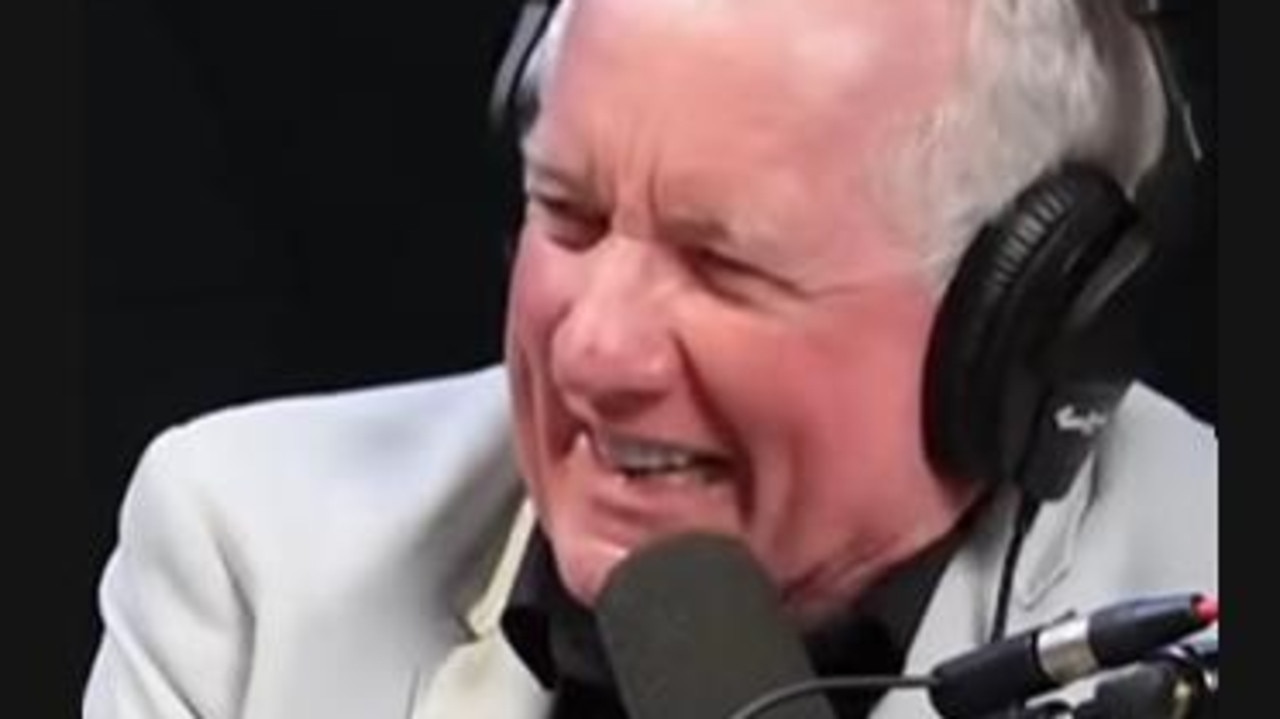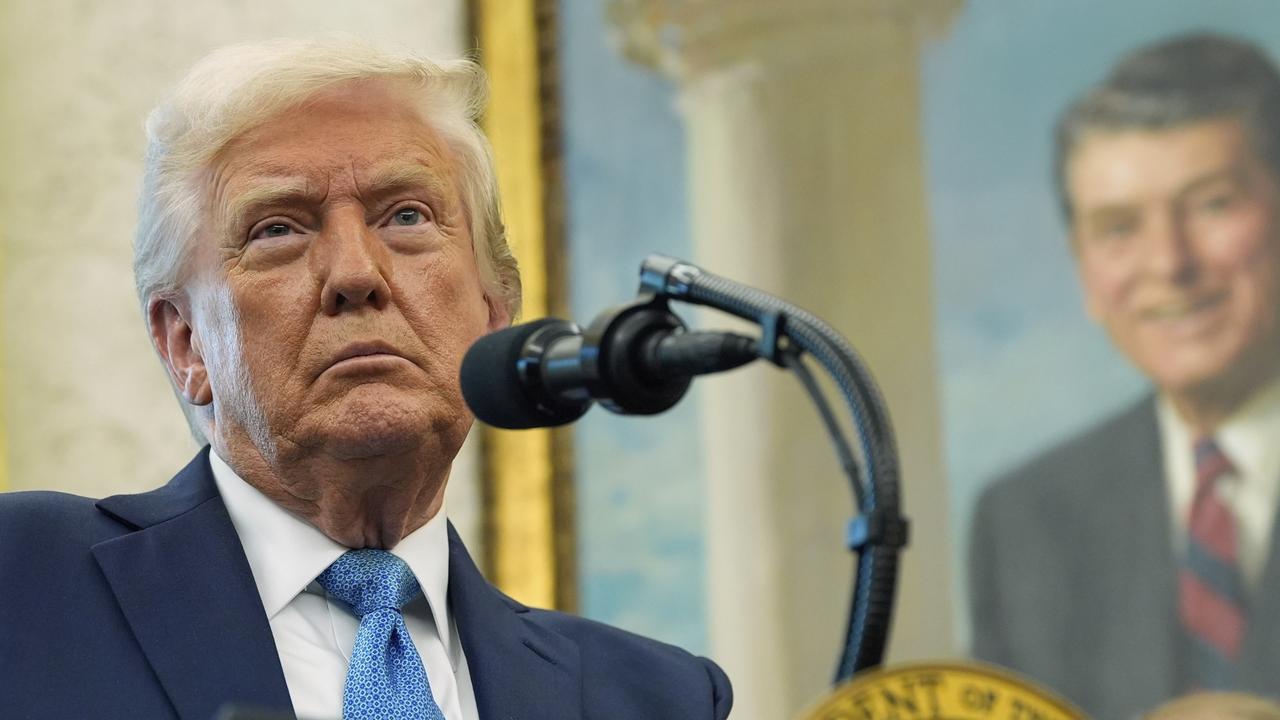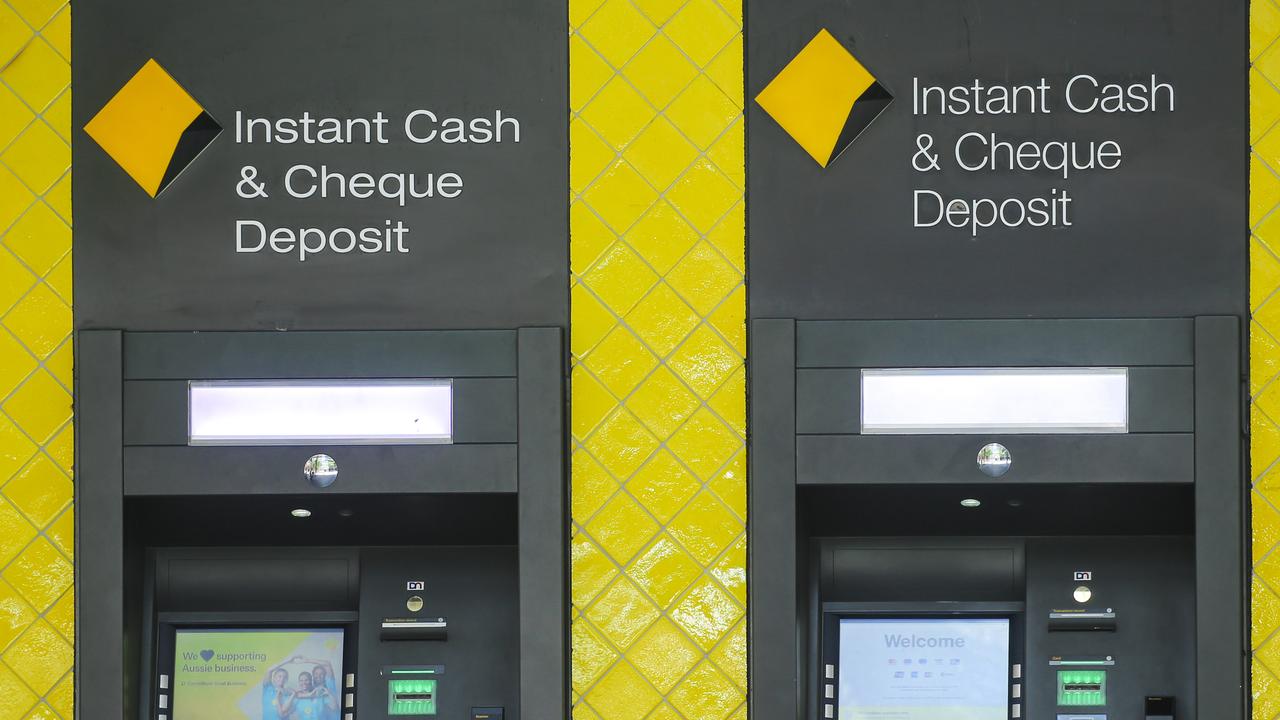‘Bulls**t’: Expert erupts as CBA stuns world
A leading real estate guru has urged all Australians to ask one important question after the meteoric rise of Commonwealth Bank in recent months.
News
Don't miss out on the headlines from News. Followed categories will be added to My News.
A leading real estate guru has urged all Australians to ask one important question after the meteoric rise of Commonwealth Bank in recent months.
The nation’s biggest bank has seen its share price hit an all time high this week despite global financial turmoil caused by Donald Trump’s trade war with the entire world.
Kevin Doodney, an Australian housing futurist at the High Yield Property Group, has gone viral on social media for comments he made about Australia’s big four banks — that point to why this share price rise may be happening.
He referred to research from The Australia Institute that showed a staggering figure he claims the majority of Australians would be shocked to hear.
MORE: Home loan trap taking years to escape
He said the Australian banking industry is the most concentrated in the world and also the most profitable.
“In fact the ‘big four’ Australian banks make up four of the eight most profitable banks in the world,” he told news.com.au.
“They are making that money from a population of just 27 million people. There’s 8 billion people out there, for Christ’s sake.
“What the Australian public needs to ask is, how on Earth can that be possible? Because, I think the Australian people are going to look at that and go, nah, that’s not possible.”
In its latest results, Commonwealth Bank (CBA) made $9.48 billion after tax, while Westpac made $7 billion, Nab made $6.96 billion and ANZ made $6.53 billion.
Mr Doodney said successive federal governments and the Reserve Bank of Australia (RBA) have justified these profits made in the banking sector because they have called for a “robust banking system”.
“I’m calling bulls**t on that, because my attitude is that, you know, for the first time in history, affordable housing is becoming a serious issue for any government, and you’ve got to look at who’s making the money out of that, between either the government themselves or the banking system,” he said.


MORE: Huge prediction for Aussie house prices
“You’ve got the government making up to quarter million on the first time buyer through stamp duty, which means the first time buyer spends 10 years of a 30 year mortgage just paying that bit back. On top of that, you have a banking system that can adjust the interest rates at any time of their choosing, whereas on the world stage, that’s not an option. So I think we all need to play by the same bloody rules.”
He is referring here to Australia’s system of using variable rates on home loans. Australia is an anomaly on the world stage when it comes to this.
Up to 70 per cent of home loans here are serviced on a variable rate. New Zealand and South Africa have similar systems.
However, most nations are geared towards fixed rate loans, so homeowners can lock in their preferred rate over several decades, or have a more even balance between variable and fixed options.
Mr Doodney reckons this, along with high stamp duty, has resulted in Australians getting a raw deal.
“I’m just saying, After 45 years of future housing stuff that we do, sure the developers have got a part to play in affordability, a whole bunch of people have, but s**t, you know, the banking system has nearly busted our first time buyers in the last four years,” he said.

“Since the year 2000 the banks have had more robust support than anyone else on the planet, because the Americans are the biggest shareholders in those banks.
“You know, most people think the Commonwealth Bank of Australia is purely Australian, but if you check the major shareholders of those top four banks it’s BlackRock and Vanguard — and those guys don’t make bad decisions, you know.
“And I’m not trying to uncover the conspiracy here. I’m just simply stating the simple facts about housing.”
The major shareholders of the big four banks are mainly large institutional investors, including global asset managers and Australian superannuation funds.
US Investing giants Blackrock and Vanguard do have large stakes in the banks. They own roughly 2.5 per cent of CBA for example and BlackRock alone owns a hefty 5.82 per cent of NAB shares.
However, far more money comes from Australian super funds — contributing to a nearly 30 per cent ownership of the big four banks.
Mr Doodney said Australians are “asleep at the wheel” when it comes to how much power these banks have. He said governments like to run royal commissions to make it look like they are doing something both nothing changes in the end.

“Australians are asleep at the wheel because the government keep making statements about who is to blame for house prices and why they should investigate and s**t like that,” he said.
“They’ll just come back to you and say, we’ve done a royal commission you know? We’re satisfied with this. And then it’s like yesterday’s news, and move on.”
CBA stuns the world
This all comes as Commonwealth Bank saw an unusual surge in its stock price this week — despite the world being rocked by uncertainty in recent weeks due to President Trump’s tariffs.
In a sign that the world is facing great economic turmoil, the price of gold has surged to record highs while stock markets around the world — from Europe to Japan — have taken a battering.
Australia is fairing reasonably well, with the ASX only falling by 3.32 per cent in the past six months. But if you look closely, there is one company doing much of the heavy lifting.
The nation’s biggest company by market capitalisation — Commonwealth Bank — has seen something truly remarkable happen to its share price.
On Tuesday, it surged to an all-time high after rocketing 4.2 per cent in one day after a massive rise 49 per cent in the past 12 months. That, remarkably, makes it now the most expensive bank stock in the history of the world.
Even seasoned investors are stunned by what is happening.
“Everyone has been scrambling to explain the phenomenon,” the AFR’s Chanticleer reported. “One analyst reported 10 inbound calls on Tuesday from investors worried they had missed something. No one can rationally explain why any investor is ploughing capital into a bank with zero earnings growth and an eye-watering valuation.”

There are some theories floating around about what is causing investors from around the world to pour their cash into an Aussie bank amid fears of a global recession.
Richard Coppleson, the director of institutional sales and trading at Bell Potter, claimed in his Coppo Report newsletter that a very significant US institutional investor has been selling their US stocks and looking elsewhere.
They have been spooked by what’s happening in the US, so do want to plough their money into the stock market there because of the uncertainty created by President Trump.
China is also taking a hammering as it cops brutal 145 per cent tariffs on its exports to one of its biggest markets, the US. So that is also scaring investors away.
Mr Coppleson said these big investors have instead been looking for opportunities in Australia. The first place they tend to look is our banks and they don’t care how much they pay for them.
If they’re looking at our banks then it’s hard to look past Commonwealth which holds roughly a quarter of Australia’s $2.2 trillion mortgage market.
This is underpinned by a housing market that has famously risen so quickly over several decades that it has made tradies living in the suburbs into millionaires and prevented whole generations of Australians from ever owning their own homes, as wage increases have no chance to keep pace.
However, it’s not all plain sailing for Commonwealth — which is actually seeing its share of the lucrative borrowing market fall. For instance, in May 2023, CBA’s mortgage market share was about 25.9 per cent.
This reduction in market share is partly due to the bank’s strategic decision to focus on profit margins over aggressive expansion. It went as far as to deliberately reduce its home loan book by $2 billion, opting not to compete for less profitable mortgage customers.
On the flip side, with other major banks like ANZ and Westpac have gained market share by offering competitive rates and cashback incentives.
However, if you look at what happened on the ASX on Tuesday, it’s clear these mystery cashed-up investors only have eyes for one bank. Westpac rose just 0.1 per cent, while NAB and ANZ fell 0.5 per cent and 0.6 per cent respectively.
Australia’s other big banks may not be getting the same luxuries as Commonwealth for a number of reasons.

ANZ is undergoing big changes as it prepares for an imminent CEO change on May 12. ASIC has been investigating the bank for various concerns, including potential market manipulation during a $14 billion government bond sale in 2023, miscalculated interest on savings accounts, and potentially incorrect hardship provisions.
NAB has just seen its CFO, Nathan Goonan, poached by rival Westpac. And, Westpac, in turn, is in the midst of a massive IT transformation which is costing it $2 billion a year until 2028.
Macquarie Group — known as the “millionaire factory” because of how much dosh it makes — has seen its earnings decline in recent years.
For the fiscal year ending March 31, 2024, Macquarie reported a net profit after tax of $3.52 billion, marking a 32 per cent decrease compared to the previous year — marking the company’s most significant annual profit drop in 15 years.
Another reason CommBank may be doing so well is that size matters when it comes to investing, and the bigger you are the more you will get from so-called passive investing.
This means people may not be actively seeking out CommBank shares but they are buying them passively because they are now such a big part of major part of index funds like the ASX200 or superannuation funds.
Commonwealth Bank takes up a massive 11.5 per cent of the ASX200 — an index of Australia’s top 200 companies — the next biggest stock is BHP at 7.9 per cent, and the next biggest bank is Westpac at 4.5 per cent.
This means that for every $1000 someone invests in the ASX200, CommBank will get roughly $115 while is next biggest rival Westpac will get just $45.
Originally published as ‘Bulls**t’: Expert erupts as CBA stuns world







